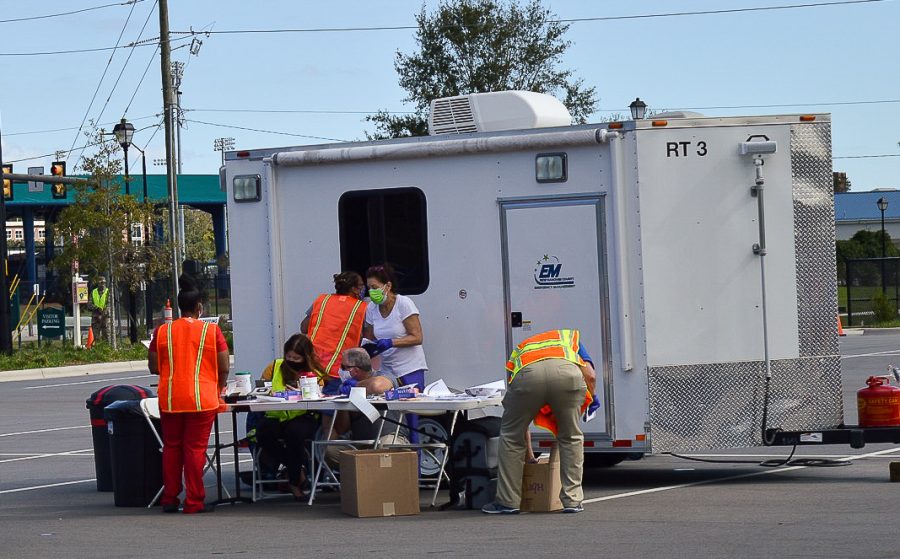UNCW provides more information regarding spring return COVID-19 testing
COVID testing site at UNCW.
On Dec. 7, UNC Wilmington (UNCW) sent an email to all students, faculty and staff providing more details about the required coronavirus (COVID-19) testing for residential students returning in the spring.
UNCW residential students will be required to receive and provide a negative COVID-19 test three days before returning to campus. Students who cannot provide one before returning will receive a test at the on-campus testing site at Burney Center during Move-In between Jan. 15-16 or Jan. 19.
“More details about testing information for non-residential students taking in-person classes and faculty and staff working on campus will be shared with the campus community in the coming weeks,” as stated in the email.
Residential students that left campus early due to de-densification purposes, will receive additional information from Housing and Residence Life and the Student Health Center.
In addition, the email provided more information about the added surveillance testing requirements.
The Student Health Center will start conducting surveillance testing this spring known as “Testing Tuesdays” where a sample of students and employees living and working on-campus will be tested.
“These test results, when coupled with information from the campus wastewater sampling conducted and analyzed by UNCW researchers, will position the university to respond even more quickly to potential COVID-19 outbreaks on campus,” as stated in the email.
More information about “Testing Tuesdays” will be provided in Jan.
In addition to continuing to follow the 3Ws (Wear, Wait, Wash), the university also encouraged students to reduce unnecessary contact with those outside of their bubble two weeks before returning to campus and the start of classes on Jan. 20, 2021.
“These strategies will be modified as needed, based on guidance from the CDC (Centers for Disease Control) and state and local health agencies,” as stated in the email.








